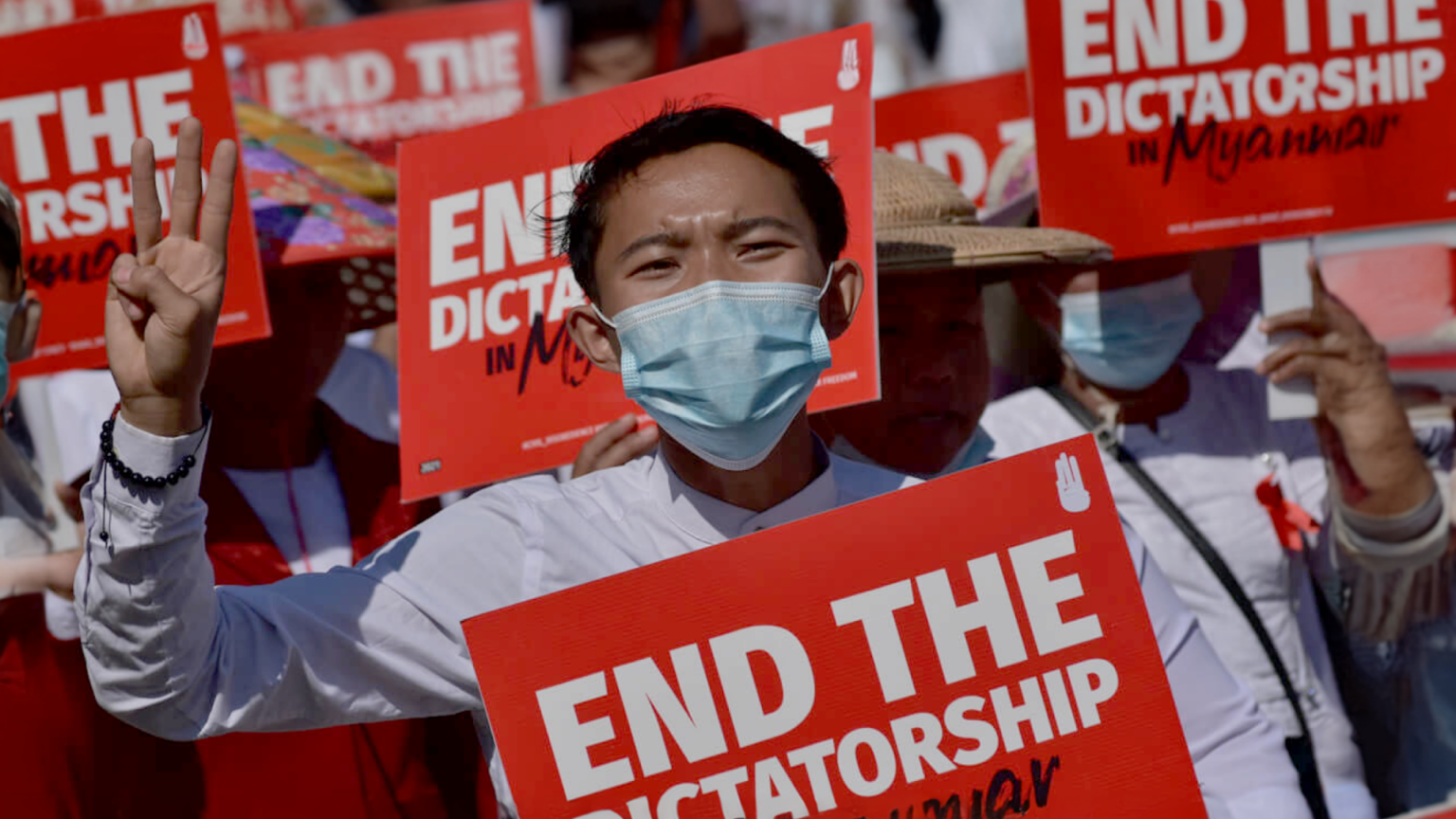

Two years ago today, Burma’s junta, led by military chief Min Aung Hlaing (MAH), seized power in a coup and overthrew the newly elected government. Across the country, hundreds of thousands of people fearlessly took to the streets to condemn the military junta and demand the full restoration of democracy ― their only hope for better lives.
Throughout the country, pro-democracy protests continue, both online and offline, with the slogans “We must win,” “Get out MAH,” “Everything will be OK,” and “Justice for Myanmar.” Civilians have devised creative nonviolent ways to protest, including banging pots and pans at night to symbolically drive out evil, putting morals over money through a “silent strike,” or leaning into sartorial choices in “the Sarong movement,” where women displayed traditional sarongs on the streets as a gesture of bad luck toward the military
Burma’s forces responded to the protests by carrying out a deadly crackdown on millions of civilians. The troops have committed human rights atrocities — mass killing, torture, sexual abuse, among other forms of violence. Since the coup, the military junta has arbitrarily arrested at least 17,000 and killed more than 2,800 activists, pro-democracy supporters, politicians, and journalists. Among them, 111 people were reportedly burned, either alive or after being killed, in an apparent attempt to destroy evidence of their crimes. In July, the junta executed four pro-democracy activists, the country’s first known executions in more than three decades.
The military has resorted to sexual violence against women and girls as a weapon of war.
More than 3,000 women and girls have been arrested by military forces and at least 300 have been killed since February 2021. Twelve of those victims, children included, were raped before being killed. In Haimual, a small village in Chin State, junta soldiers raped a 17-year-old girl several times before shooting her in the head. Her body was covered in bite marks, her genitals mutilated. Women and LGBTI+ people have reported gender-based violence and other forms of humiliation from the police and military while in custody. One transgender woman revealed she was raped and severely beaten in custody.
Burma’s forces have indiscriminately attacked civilians with airstrikes, live ammunition, and other lethal weapons. The military destroyed up to 34,000 infrastructures, including schools, health facilities, and places of worship. It has also arbitrarily detained more than 1,400 and killed at least 382 children.
Another result of the conflict are the growing humanitarian needs: Junta-imposed travel restrictions on humanitarian workers, attacks on aid and medical workers, shutdowns of telecommunications services, Internet, and electricity, and blocked roads. Since the beginning of the coup, more than one million people have been displaced internally and another 70,000 people forced to flee to neighboring countries like Thailand and India.
In December, the United Nations Security Council adopted its first resolution on Burma, calling for the immediate end of all forms of violence, the release of arbitrarily detained prisoners, protection of minority groups, access to humanitarian aid, and the respect of rights of women and children.
The Council left out what the consequences would be if the junta fails to follow suit. Meanwhile, the Association of Southeast Asian Nations still upholds the non-interference principle, failing to adhere to the “Five Points Consensus.” The international community must change course and act immediately.
Two years after the coup, the people of Burma courageously continue their struggle against the vicious military regime. Even in their darkest days, they never lose hope for justice and democracy. We must stand with them.
The Human Rights Foundation (HRF) is a nonpartisan nonprofit organization that promotes and protects human rights globally, with a focus on closed societies.
Join us in helping save lives and stand up to tyranny.

Reach out with any questions or support needs.
Become part of our mission-driven team.
Find answers to commonly asked questions in our FAQs.
Hit enter to search or ESC to close